Stroke
A stroke is also known as a “brain attack” and occurs when the blood flow to an area of the brain is cut off. Brain cells and tissue deprived of oxygen and nutrients will begin to die within minutes. Depending on the location and size of oxygen deprivation in the brain, a stroke can lead to small or very large motor, cognitive, and/or sensory deficits.
The use of Hyperbaric Oxygen Therapy (HBOT) can reverse tissue oxygen deprivation in the acute setting and after the damage has occurred, HBOT can help re-grow blood vessels and regenerative nerve cells.

HBOT for Stroke
HBOT benefits patients who have suffered a stroke in the following ways:
- May help reduce the amount of brain damage from swelling and inadequate blood supply
- Speeds recovery and rehabilitation
- Creates new blood cells
- Reduces inflammation in the brain
- Promotes stem cell mobilization
Read More About HBOT
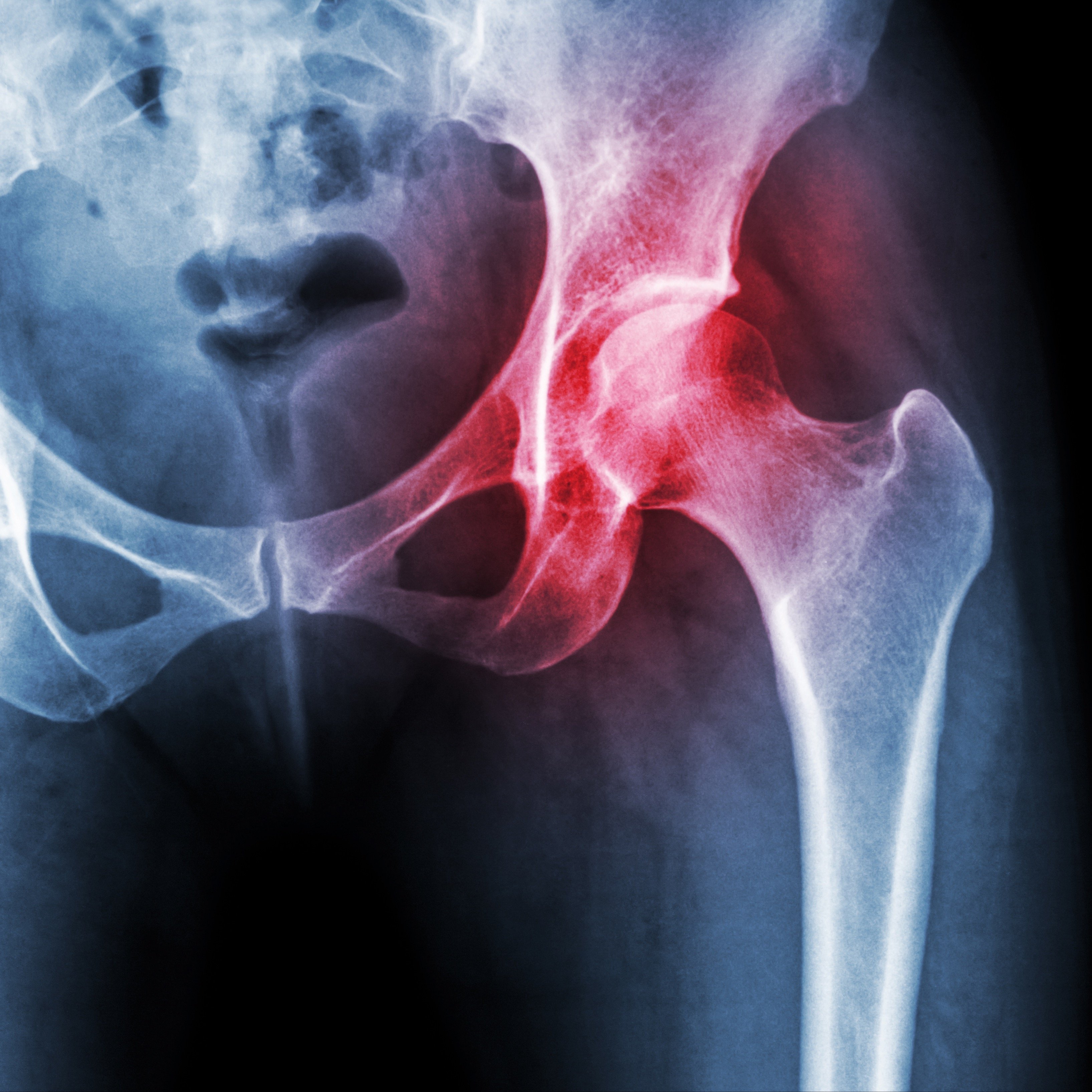
Hyperbaric Oxygen Therapy: A Game-Changer in Avascular Necrosis (AVN) of the Femur
Discover how Hyperbaric Oxygen Therapy (HBOT) revolutionizes the treatment of avascular necrosis (AVN) of the femur, offering a non-surgical path to bone rejuvenation and healing.
Read More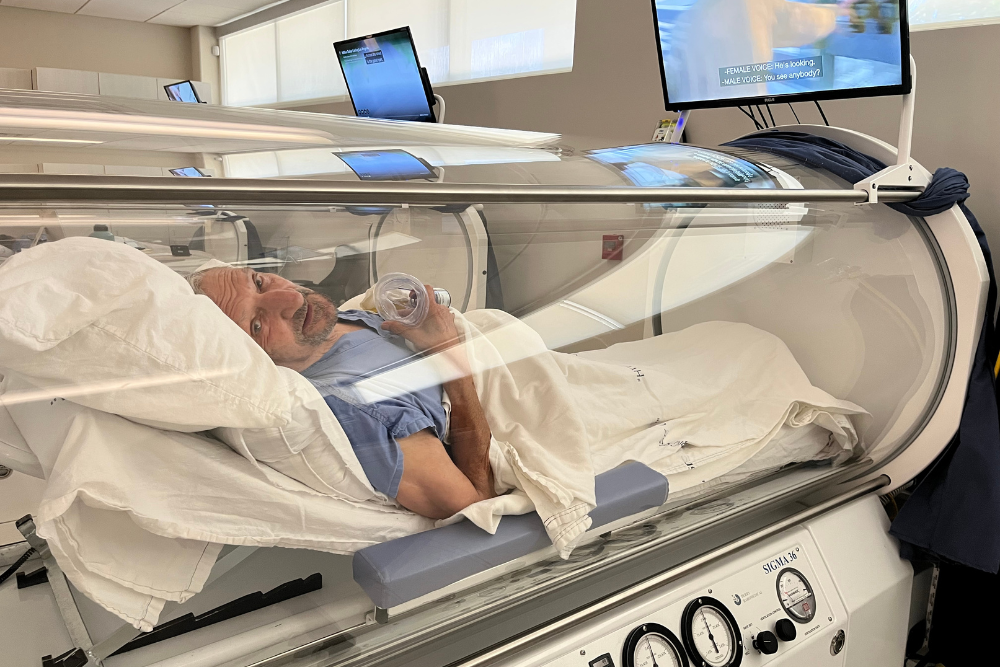
What to Look for in a Hyperbaric Oxygen Therapy (HBOT) Clinic
Looking for a safe, effective HBOT clinic? Learn what to look for — and why patients trust Hyperbaric Medical Solutions for medical-grade care.
Read More
Harnessing the Power of HBOT for Men's Health
Hyperbaric Oxygen Therapy (HBOT) can address common male and men's health challenges and improving overall quality of life for men.
Read More
Treating Radiation Damage with Hyperbaric Oxygen Therapy
Hyperbaric oxygen therapy is a safe, non-invasive treatment that targets and repairs damaged body tissue caused by radiation therapy.
Read More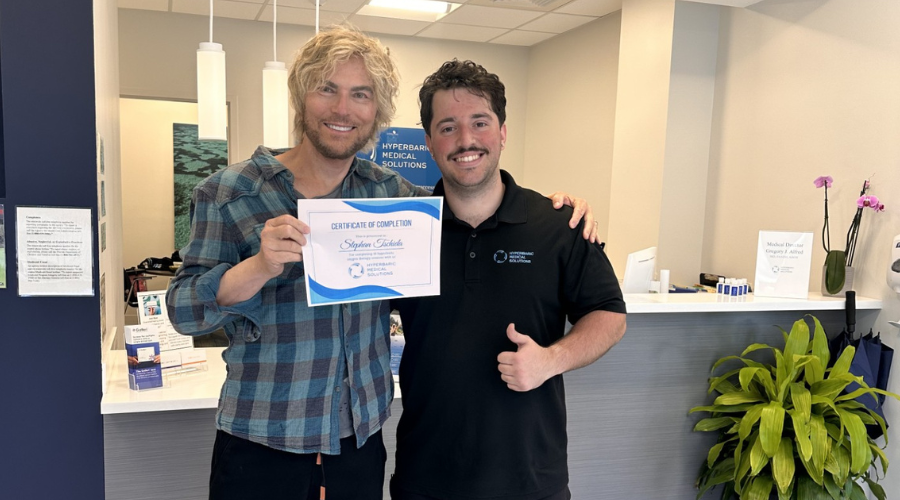
Case Study: Delayed Radiation Effects Resolved with HBOT
In this case, Hyperbaric Oxygen Therapy helped a patient with delayed radiation damage from prostate cancer.
Read More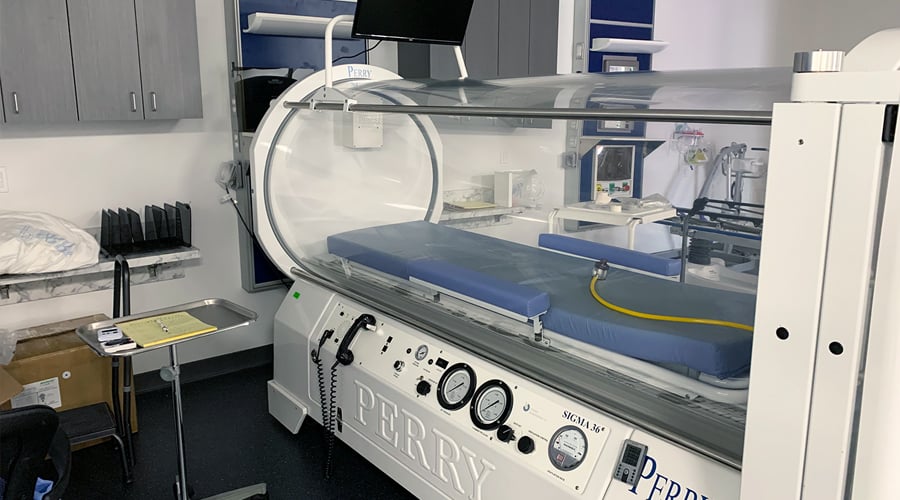
How Often Should You Do Hyperbaric Oxygen Therapy?
Learn how often you should do hyperbaric oxygen therapy sessions to get the best results for your health and healing.
Read More
Is Hyperbaric Oxygen Therapy Covered by Insurance?
Insurance coverage for hyperbaric oxygen therapy (HBOT). The FDA recognizes HBOT for 14 conditions, which are generally covered by insurance.
Read More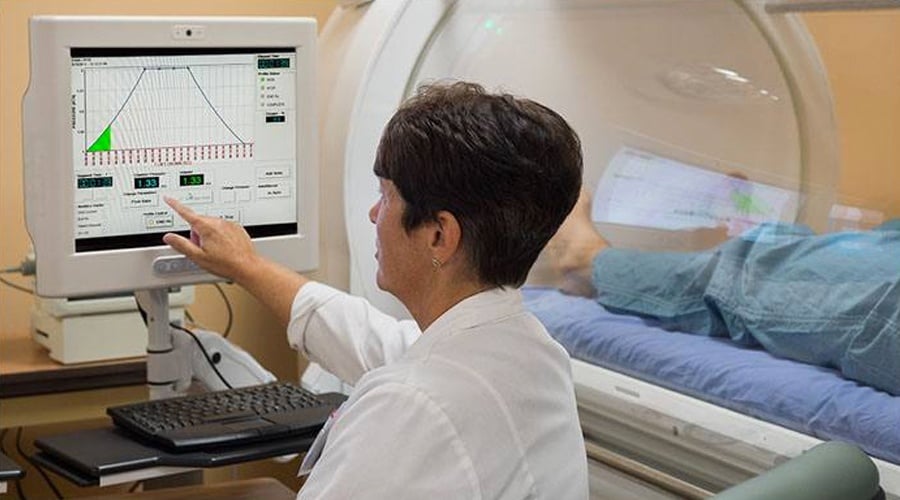
Types of Hyperbaric Chambers
There are two common types of hyperbaric chambers, monoplace—which holds one patient at a time—and multiplace, which can accommodate multiple patients at once.
Read More
How Much Does Hyperbaric Oxygen Therapy Cost?
The cost of hyperbaric oxygen therapy varies, depending on whether or not your insurance will pay for it, and the severity of your symptoms.
Read More
6 Reasons Top Athletes Use Hyperbaric Oxygen Therapy
6 reasons top athletes use hyperbaric oxygen therapy for improved performance.
Read MoreSee if HBOT is Right For You
Our experienced clinical team is available to help you find out if you’re an appropriate candidate for Hyperbaric Oxygen Therapy and to answer any additional questions about HBOT and our facilities.
You deserve the best – our mission is to achieve patient success through personalized, innovative, and compassionate care that enhances your healing potential. We do so at the lowest possible out-of-pocket cost, with only one copay and/or less coinsurance than at a hospital-based HBOT program.
Call us today at (646) 846-2081 or click the “Get Started” button to take the next step with Hyperbaric Oxygen Therapy and learn how it can help you accelerate healing and achieve optimal health!
Resources
Experience HBOT at These Locations
Woodbury, NY
(516) 757-0716
Learn MoreManhattan, NY
(646) 760-3474
Learn MoreFort Lauderdale, FL
(954) 507-3913
Learn MoreMiami, FL
786-550-1975
Learn MoreRandolph, MA
(781) 961-7887
Learn More